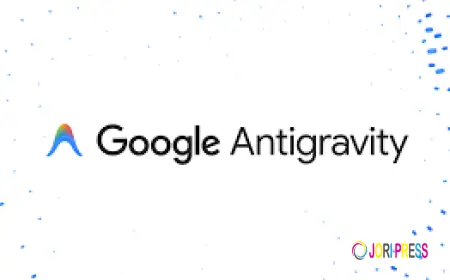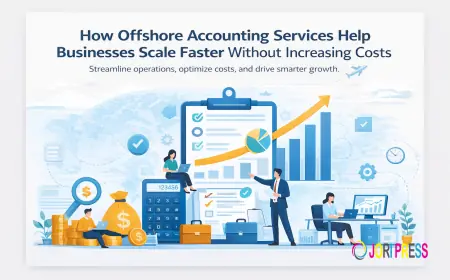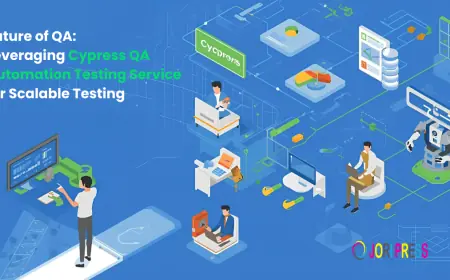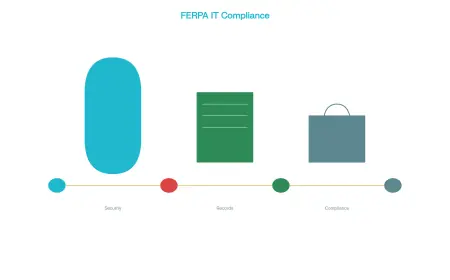A Deep Dive into AI Product Marketing Platforms and How to Choose the Right One
In today’s AI-driven marketplace, choosing the right AI product marketing platform can make or break your go-to-market success. This in-depth guide explores the evolving landscape of AI product marketing platforms—what they are, how they work, and what key features to look for.

The marketing landscape is evolving at an unprecedented pace, and artificial intelligence (AI) is leading the charge. No longer just a buzzword, AI has embedded itself at the core of successful digital marketing strategies—especially for tech-driven products. At the heart of this transformation lies the AI product marketing platform, a new breed of tools designed to automate, optimize, and personalize every aspect of the product marketing funnel.
But with dozens of options flooding the market—each claiming to be smarter and more scalable than the last—how do you choose the right AI product marketing platform for your business?
-
What AI product marketing platforms actually are
-
Their core features and benefits
-
Popular tools in the space
-
And a clear framework for choosing the right platform for your goals
? What Are AI Product Marketing Platforms?
AI product marketing platforms are integrated software solutions that leverage artificial intelligence to plan, execute, analyze, and optimize marketing campaigns for products—especially in tech or SaaS industries. These platforms unify data, automate tasks, and deliver hyper-personalized experiences at scale.
Unlike traditional marketing tools, they use machine learning, natural language processing (NLP), predictive analytics, and real-time data processing to improve targeting, content creation, engagement, and ROI.
Example Use Cases:
-
Automatically generating and testing thousands of ad variations
-
Predicting which user segments are most likely to convert
-
Delivering personalized emails, landing pages, and demos
-
Recommending optimal content strategies based on performance data
? Core Capabilities of AI Product Marketing Platforms
Here are the foundational features you should expect from a high-quality AI marketing platform:
1. AI-Driven Audience Segmentation
Break down your customer base using behavioral data, intent signals, firmographics, and psychographics. Platforms like 6sense and Lattice Engines offer deep predictive segmentation.
2. Predictive Lead Scoring
Using machine learning models, the platform evaluates which leads are most likely to convert—based on historical data, engagement patterns, and third-party insights.
3. Content Intelligence and Generation
From blogs to emails to product descriptions, AI tools (like Jasper or Writer) can automatically generate and optimize content based on performance data and audience preferences.
4. Multi-Channel Campaign Automation
Launch and manage campaigns across email, ads, social, and web from one place. The AI adjusts touchpoints based on engagement patterns and real-time behavior.
5. Real-Time Personalization
Deliver personalized messaging, offers, and UX across touchpoints—based on customer journey stage and behavioral triggers.
6. Data Analytics and Reporting
AI platforms don’t just track data—they interpret it, offering recommendations for optimization, forecasting ROI, and highlighting campaign bottlenecks.
7. Sales and Product Integration
Many platforms integrate with your CRM, product analytics, and sales enablement tools, allowing sales teams to act on marketing insights.
? Benefits of Using AI Product Marketing Platforms
Choosing the right AI platform can lead to transformative benefits for your marketing team and your business:
-
Scalability: Automate repetitive tasks and handle thousands of personalized campaigns with minimal human input.
-
Faster GTM (Go-to-Market): Cut the time to launch new products and features with AI-driven planning and execution.
-
Increased Conversion Rates: Hyper-personalization and predictive analytics help engage users with the right message at the right time.
-
Reduced CAC (Customer Acquisition Cost): Optimize ad spend, reduce churn, and improve funnel efficiency.
-
Data-Driven Decisions: Make smarter decisions, backed by real-time data, not guesswork.
? Top AI Product Marketing Platforms to Consider
Here’s a curated list of popular platforms used by top tech and SaaS companies:
| Platform | Key Features | Ideal For |
|---|---|---|
| HubSpot AI | AI-powered CRM, email personalization, SEO | SMBs and mid-market firms |
| Drift | Conversational AI, chatbot automation, ABM | B2B SaaS companies |
| 6sense | Predictive analytics, intent data, lead scoring | Enterprise B2B marketing |
| Jasper | AI content generation, SEO optimization | Content-heavy teams |
| Marketo Engage (Adobe) | Multi-channel campaigns, AI lead scoring | Enterprise-level marketers |
| Mutiny | Website personalization, no-code editor | Growth and CRO teams |
| Crayon | Competitive intelligence for product marketers | Product marketing teams |
? How to Choose the Right AI Product Marketing Platform
Selecting a platform isn’t about picking the most popular one—it’s about finding the right fit for your goals, team, and tech stack. Follow this 5-step framework:
1. Clarify Your Marketing Objectives
Are you trying to improve lead generation? Personalize customer journeys? Shorten sales cycles? Your objective will determine the tool’s required features.
Example:
If your goal is to optimize ad campaigns with minimal effort, platforms like AdCreative.ai may be ideal.
If your priority is to generate high-quality B2B leads, 6sense or Demandbase might be better.
2. Evaluate Your Data Infrastructure
AI thrives on data. Ensure your data is clean, accessible, and integrated across tools. Check if the platform:
-
Connects easily to your CRM (e.g., Salesforce, HubSpot)
-
Integrates with your product analytics (e.g., Mixpanel, Amplitude)
-
Supports third-party enrichment tools
3. Assess Team Skill Sets and Resources
Some platforms require minimal setup and are great for lean teams (like Jasper or Mutiny), while others (like Marketo) may need dedicated marketing ops.
Tip: Don’t overwhelm a small team with an enterprise-level tool that needs full-time management.
4. Test AI Performance & Transparency
Not all AI models are equal. Ask for:
-
Case studies or benchmarks of performance improvement
-
A clear explanation of how their algorithms work
-
Control over AI decisions (like approving content or campaign triggers)
Transparency builds trust in automation.
5. Run a Pilot or Free Trial
Many platforms offer 7–30-day trials or pilots. Use this time to:
-
Test integrations
-
Measure improvements in KPIs like CTR, lead quality, and engagement
-
Gather feedback from marketers, content creators, and sales teams
Evaluation Checklist:
-
Ease of use
-
Automation capabilities
-
Personalization depth
-
Real-time analytics
-
Customer support and documentation
? Common Mistakes to Avoid
-
Focusing only on features, not outcomes
Choose based on what the tool can help achieve, not just what it does. -
Ignoring the learning curve
Advanced AI platforms often need onboarding. Make sure your team has bandwidth for it. -
Over-automating without supervision
Letting AI run without oversight can backfire. Keep humans in the loop, especially for content and messaging. -
Underutilizing the platform
Many companies only use 30-40% of a platform’s capability. Invest in training and onboarding.
? The Future of AI Product Marketing Platforms
As AI matures, we’re moving toward fully autonomous marketing agents—platforms that manage entire funnels from ideation to conversion without human input. Expect future platforms to:
-
Integrate deeply with LLMs (Large Language Models)
-
Handle multilingual, cross-platform content creation
-
Offer adaptive learning based on user sentiment and intent
-
Merge product data, user behavior, and marketing insights into one intelligent ecosystem
In other words, the platform you choose today could define your competitive advantage tomorrow.
✅ Conclusion: Making the Smart Move
AI product marketing platforms aren’t just another tool in the stack—they’re a foundational layer for modern, scalable, customer-centric growth. With the right platform, you can streamline workflows, personalize at scale, and gain deep insights that help your product succeed in a competitive market.
To recap:
-
Understand your goals and match features accordingly.
-
Integrate it with your tech stack.
-
Prioritize platforms that are scalable and transparent.
-
Pilot before committing long-term.
What's Your Reaction?
 Like
0
Like
0
 Dislike
0
Dislike
0
 Love
0
Love
0
 Funny
0
Funny
0
 Angry
0
Angry
0
 Sad
0
Sad
0
 Wow
0
Wow
0



















































